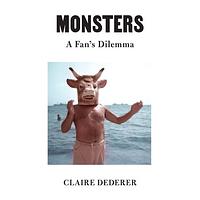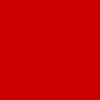You need to sign in or sign up before continuing.
Take a photo of a barcode or cover
reflective
fast-paced
My experience of reading this book suffered as a result of my expectations going into it. I anticipated something more anthropological or philosophical, but if anything, this is a memoir. The personal nature makes sense given the book's foundational argument that one's experience consuming the art of monstrous people is subjective and there is no one set of rules. I kept expecting her to address certain arguments, but it seems she limited the scope of the subject matter to what is interesting to her, not what is central to the discourse. I would have really liked to read about consuming art by people who have problematic view points as opposed to past actions. There were some tangents that I enjoyed but felt belonged in a different book, like her lengthy descriptions of being a critic and parenting as a writer. I really did not like the framing that male artists are bad because they rape and beat women and female artists are bad because they abandon their children. I think there's a line that reads something like "if rape is a man's crime, abandoning family is a woman's crime." Ew. I guess I can understand what she was trying to get at but it missed the mark. I really wish her discussion of being an alcoholic and feeling like a monster in her own ways had come earlier in the book to lend context to her reflections. The idea of navigating cancel culture in a community like AA was really interesting to me. I wanted a tangent on that. Her final argument is some love conquers all BS about how we all do bad things and want people to love us anyway. I don't disagree, but I think there has to be a distinction between the wrongdoing of people like Roman Polanski and Woody Allen and say, being an absent parent. I'm glad I read this and there were some chapters that I found interesting, but overall, I don't think my views on consuming art made by monstrous people are any better informed or challenged than they were before.
challenging
informative
reflective
medium-paced
medium-paced
This topic is something I think about often as a female fan of many classic-rock staples of the 60s and 70s—basically wall-to-wall abusers and arseholes—and Dederer takes a big swing at it that doesn’t fully connect. She explores the thorny allure of the bastard “genius” and her own relationship with the works of Roman Polanski and Woody Allen. She asks a lot of questions but doesn’t come to any answers, because there are no answers.
Around halfway through, starting with the chapter on Nabokov—an interesting chapter in itself, about an artist who arguably doesn’t belong in this book—Monsters lost its thread and never really recovered my attention. The later chapters veer into a weak concession towards women being monsters too, and how the mother who abandons her child is considered the most monstrous woman of all—mainly citing the example of young Joni Mitchell giving up a child for adoption. Maybe I’m just too childless, but I wasn’t interested in this turn of events, or in hearing about how the author felt like a monster leaving her family to go on a five-week writing retreat. There’s a worthwhile thesis about the work–life balance of women artists in there somewhere, but it shouldn’t have been in this book, and muddies the premise with the author’s maudlin navel-gazing.
Overall, Monsters starts out really well, and has some interesting moments, but it ends up as more of a memoir than a piece of critical non-fiction, and no type of writer gets my goat worse than the wallowing professional memoirist. It has some merits in how it discusses the complicated feelings we’ve all had towards artists we like, but I was knocking stars off from the middle to the end.
Around halfway through, starting with the chapter on Nabokov—an interesting chapter in itself, about an artist who arguably doesn’t belong in this book—Monsters lost its thread and never really recovered my attention. The later chapters veer into a weak concession towards women being monsters too, and how the mother who abandons her child is considered the most monstrous woman of all—mainly citing the example of young Joni Mitchell giving up a child for adoption. Maybe I’m just too childless, but I wasn’t interested in this turn of events, or in hearing about how the author felt like a monster leaving her family to go on a five-week writing retreat. There’s a worthwhile thesis about the work–life balance of women artists in there somewhere, but it shouldn’t have been in this book, and muddies the premise with the author’s maudlin navel-gazing.
Overall, Monsters starts out really well, and has some interesting moments, but it ends up as more of a memoir than a piece of critical non-fiction, and no type of writer gets my goat worse than the wallowing professional memoirist. It has some merits in how it discusses the complicated feelings we’ve all had towards artists we like, but I was knocking stars off from the middle to the end.
bailed halfway through. too much memoir type writing and summarized biographies for me, felt like it wasn’t even trying to come up with even a nuanced answer to this unanswerable question just floated around.
challenging
informative
reflective
medium-paced
challenging
informative
reflective
medium-paced
reflective
medium-paced
"In fact, you will solve nothing by means of your consumption; the idea that you can is a dead end."
While I agree that we will inevitably make mistakes and we shouldn't call ourselves "monsters" for consuming "monsters'" products, I don't think this gives us free license to consume everything. Sort of like "if there's no such thing as ethical consumption, we might as well just consume whatever we want if it's all bad anyway" is what I'm worried some people might take away from this. Cultural boycott movements have been shown to work, for instance, during the South African anti-apartheid movement which was crucial in forcing major institutional funders of the apartheid to withdraw their support for the government. And while I don't believe that boycotting is end-all-be-all solution, we cannot completely discount its contributions towards dismantling oppressive institutions. Obviously do what you can with whatever means you have given your material conditions, but you're not gonna die if you don't watch a film by Polanski. I think if you consume something by "monsters" for your own comfort/enjoyment, you should also be able to sit with the discomfort and reality of potentially offending others who were hurt by those "monsters." And good for you, I guess, if you can look past that.
Maybe instead of just merely acknowledging that we have no power as consumers under capitalism, maybe we should, I don't know, do something about that?
While I agree that we will inevitably make mistakes and we shouldn't call ourselves "monsters" for consuming "monsters'" products, I don't think this gives us free license to consume everything. Sort of like "if there's no such thing as ethical consumption, we might as well just consume whatever we want if it's all bad anyway" is what I'm worried some people might take away from this. Cultural boycott movements have been shown to work, for instance, during the South African anti-apartheid movement which was crucial in forcing major institutional funders of the apartheid to withdraw their support for the government. And while I don't believe that boycotting is end-all-be-all solution, we cannot completely discount its contributions towards dismantling oppressive institutions. Obviously do what you can with whatever means you have given your material conditions, but you're not gonna die if you don't watch a film by Polanski. I think if you consume something by "monsters" for your own comfort/enjoyment, you should also be able to sit with the discomfort and reality of potentially offending others who were hurt by those "monsters." And good for you, I guess, if you can look past that.
Maybe instead of just merely acknowledging that we have no power as consumers under capitalism, maybe we should, I don't know, do something about that?
informative
inspiring
reflective
sad
fast-paced
informative
reflective
challenging
emotional
hopeful
informative
reflective
medium-paced







